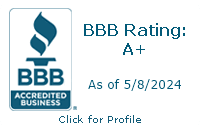How do you develop consistently strong workplace performance in yourself or others?

Since the start of 2018, it seems I've been on a roll with respect to my work performance. I'm serving clients consistently, thoroughly, and well. I'm handling internal tasks efficiently, effectively, and rationally. I'm facing challenging issues head on, addressing them quickly and decisively.
Consistent Quarterly Results ...
My intuition has been confirmed in my quarterly performance reviews, conducted by an outside consultant, whom I refer to as my "manager." Not only have I received an overall 5-Outstanding rating the past five quarters, I have earned a 5-Outstanding in ALL of the individual rating areas.
Perhaps you're thinking my manager is an "easy grader." Let me assure you, she is NOT! She has conducted my quarterly reviews for the past 38 quarters – that's over 9 years! – and I did not earn my first overall 5-Outstanding until my 18th review. Thus, for over four years, I was wondering whether I would EVER earn an overall 5-Outstanding.
... Because of a Consistent Series of Challenges
My manager and I honed our performance review skills in the 1980s, working for large companies with very similar cultures. Thus, both she and I understood my performance could not be rated as 5-Outstanding unless there was an opportunity to earn such a rating. We both knew "opportunity" meant a significant challenge requiring me to stretch to achieve it.
In each of my main performance areas – client service, business development, practice management, and personal development – each quarter has presented one or more significant challenges, ensuring I had the opportunity to earn a 5-Outstanding.
Rating = Opportunity + Response To It
My manager's "grading philosophy" – and mine, too – is this:
- There is a baseline level of performance that always needs to be met. In my firm, this is indicated by a rating of 4-Very Good.
- When an opportunity to excel presents itself, the question then becomes, "How did the person respond to it?" If the person stepped up and addressed it well, then that merits a 5-Outstanding rating.
A couple of comments about this philosophy:
- Recognizing An Opportunity – While an opportunity to excel may seem obvious, not all people recognize one when it occurs. For example, your manager is going on a two-week vacation. Do you "take it easy" or "step it up" while he is away? Similarly, if you realize your manager is swamped, do you leave at your usual 5:00? Or, do you offer to take some work off her plate, coming in early and staying late to get it done?
- Capitalizing On An Opportunity – Even if you recognize an opportunity, you might not be able to capitalize on it. A quote attributed to Zig Ziglar is "Success occurs when opportunity meets preparation." For example, you may offer to help your boss, yet once the task is explained, you and she both realize you are not sufficiently prepared to do the work.
Only when opportunity and preparation meet can you achieve your 5-Outstanding rating.
Can Excellence Be "Automatic"?
Reflecting on the past five quarters, I began wondering whether excellence could become "automatic." A good example of making excellence automatic is Steph Curry of the NBA's Golden State Warriors. His out-of-this-world shooting has set the standard for excellence, yet he began developing these skills before he was 11 years old and continues to work on improving them even today.
Note that "excellence" does not mean "perfection." Just because Steph takes a 3-point shot does not mean an automatic 3-point basket – still, in the current 2018-19 NBA season, his 3-point shot finds the basket a mind-boggling 47.4% of the time.
People like Steph Curry make excellence as automatic as it can get, because they have "the ability to develop a deliberate, strenuous, and boring practice routine." They make sure that preparation and opportunity will meet.
My "Practice Routine"
In thinking about the "practice routine" for my job, I came up with a list of 21 techniques I've consistently followed for years – and, in many instances, decades. Following are my top five "go to" techniques and, if you’d like the entire list, please let me know and I’ll be happy to send it to you:
- Keep Track of Your To Do’s on a SINGLE List – At the risk of being "old school," I always hand write my major To Do items on paper, and number them. Next, I estimate the amount of time needed, and also determine where I need to perform a task – for example, some tasks are better done in the office if I need to print a large number of items or I need to spread out a lot of papers. I then apply the MIN (Most Important Now) technique to determine what to work on next. Finally, I take an orange highlighter and shade the item's number to indicate a task I must get done today.
- Use Bullet Points or Numbered Items and "Verb-ify" These – Busy clients lack the time to read long-text documents. Help them stay productive by boiling key information down to short bullet points or numbered items, and begin each with a verb. Yes, just as you see here.
- "Chunk" Your Work – For long documents, use headings and sub-headings to break your content into manageable chunks. In fact, my newsletters consistently chunk content to make it easier for my readers.
- Ask "What's Next?" and "What Preceded This?" – Visualize where you are in the overall process of, for example, creating a purchase order, and determine what needs to happen next. Also, look backwards and determine what happened previously. I've found using these two techniques help entry-level staff persons to understand the "back and forth" nature of tasks in many common business processes.
- Kill Two Birds With One Stone – Recently, when orienting a new Business Development Associate, I realized I did not have a good overview of how we go about getting new business. I also needed a topic for an upcoming firm meeting. Thus, I found an old PowerPoint with some good information, doodled the remaining content with the new person present, and had her transcribe my doodles into new slides. Voila – an efficiently oriented new associate AND a topic to educate firm members about "How THA Gets Business."
YOU Can Make Excellence Automatic
From what I can surmise, my consistent, deliberate, repeated application of these simple techniques has helped me make excellence automatic. Remember – excellence, not perfection. At some point, I will lack an opportunity to excel, or I may have an opportunity yet blow it, and I will be back at the 4-Very Good level. Even so, it will still be a very strong performance – just not an outstanding one.
Even if you don’t aspire to be a Steph Curry, have you ever thought about – and written down – your own "practice routine"? Are you always looking for ways to make sure that preparation and opportunity will meet? If you’re doing both, you've likely made, or are well on your way to making, excellence automatic. If not, you still have room to grow.
Sincerely,

Todd L. Herman






